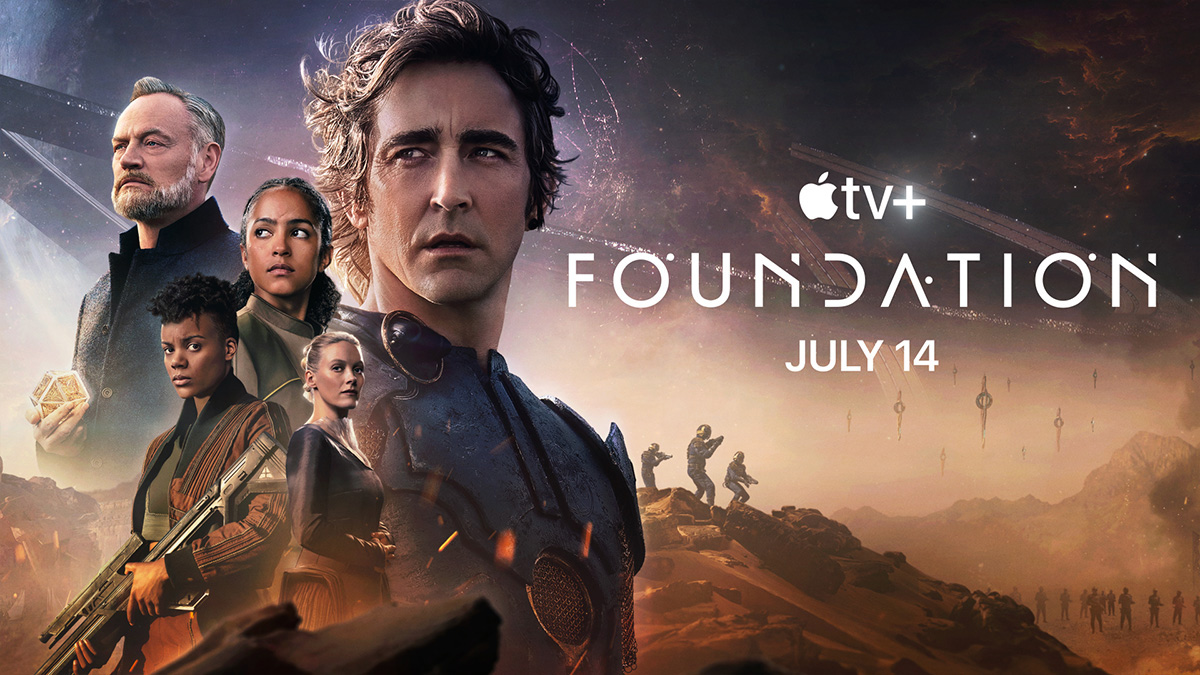This iconic work reportedly ranks among Jean-Luc Mélenchon’s favorite books — and it’s not hard to see why. At its heart lies the inevitable collapse of a galactic empire, and the efforts of the mysterious Foundation to safeguard humanity’s future using a science called psychohistory — capable of predicting the future on a civilizational scale.
Foundation: Apple TV+ Bets Big on Sci-Fi
Apple TV+ has pulled out all the stops to adapt this legendary sci-fi saga. Though the platform doesn’t yet rival the cultural clout of HBO or Netflix, it’s been making ambitious plays with original shows like See, a dystopian series imagining a future where humanity has gone blind.
For Foundation season 1 alone, Apple reportedly spent over $45 million. The cast is stacked: Jared Harris plays Hari Seldon, Lee Pace is the Emperor, with Lou Llobell and Leah Harvey in major roles alongside Laura Birn, who makes a strong impression as Demerzel.
From Novel to Screen: Simplification Inevitable?
Since the late ’90s, with series like Oz or The Wire (by Tom Fontana and David Simon), TV storytelling has evolved to match the depth and daring of indie cinema. Then came Game of Thrones, changing everything with its 60-minute superproductions — high-budget, high-drama, high-stakes storytelling.
Apple clearly wants its own heavyweight franchise, pouring in technical and narrative firepower. But such ambition comes with creative trade-offs.
Asimov’s Foundation is famously cold, intellectual, and devoid of individual heroes. History, in his universe, is not shaped by great men, but by the sweeping forces of the masses. There’s no chosen one. Apple’s version, however, needed to be more accessible — so it romanticizes the plot: Hari Seldon, Gaal Dornick, and the Emperor are transformed into central, almost immortal protagonists.
Like Game of Thrones post–season 5, Foundation moves toward a more familiar narrative structure, with clear heroes and villains — even dabbling in a bit of moral dualism. It’s a common trait of American blockbusters, from Rambo to the Marvel Cinematic Universe: personify the conflict, give audiences someone to love or hate.
Still a Spectacular Adaptation
Narrative compromises aside, Foundation remains a demanding and ambitious series. The budget allows for top-tier visual effects, and the world of Asimov is recreated with stunning visual fidelity.
As any great sci-fi should, Foundation offers a mirror to our own society. In Apple’s version, the Empire is led by a genetic dynasty: one man cloned endlessly into three versions — Dawn, Day, and Dusk. This clever invention isn’t from the original books, but it adds tension and a fresh political dimension to the adaptation.
Foundation is currently Apple TV+’s second most-watched series, just behind Ted Lasso (according to rankings from FlixPatrol and Reelgood as of July 2025). Still, it’s safe to say Apple was aiming for something even more monumental — both culturally and commercially.
